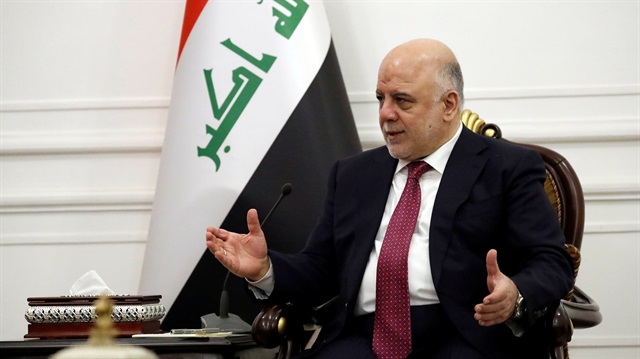
Turkmen Coordination Council is set to meet Abadi
Iraqi Turkmens, as the Turkmen Coordination Council established in Baghdad, are set to visit Iraqi Prime Minister Haider al-Abadi.
Abadi’s visit to Turkey last week has been a positive development for Turkmens, in which the Ovaköy border gate was decided to be opened. Ovaköy is an alternative to the Habur border gate, currently the only gate between Turkey and Iraq.
Turkey’s Customs and Trade minister Bülent Tüfenkci said on Thursday that Turkey had reached an agreement with Iraq on opening a second border gate.
“Most of our trade is with the central government of Baghdad, not with northern Iraq, and there is consensus on the opening of a second border gate with the central Iraqi government. After the necessary steps are taken, the Ovaköy border gate can be opened,” said Tüfenkci.
Initiatives for opening the Ovaköy border gate will be launched after the Iraqi army takes control of Faysh Khabur. The Ovaköy line will start from the bottom of the Syrian border in the west of Habur, passing near Turkmen and Arab regions and will enable goods and services to be delivered directly to Baghdad.
The Ovaköy border gate is now on the agenda of Turkmens, as well as Turkey and Iraq. The Turkmen Coordination Council, including prominent politicians and intelligentsia in Baghdad, is set to visit Abadi in order to communicate their requests. Turkmens will make a significant proposal to him within the scope of the Ovaköy Trade Gate Project. During their visit, the primary request will be extending the Ovaköy trade route to Tal Afar.
According to the current project, the Ovaköy trade route will start from the bottom of the Syrian border in the west of Habur, pass near Tel Afar and through Mosul. The 120-kilometer stabilized road to be used for connection to the main road from Mosul will become an international trade route. The Turkmen proposal envisages to pass the route through Tal Afar itself by adding a 15-kilometer road. If this happens, the region will revive and those who left due to the Daesh threat will be encouraged to return. The project will ensure that the trade route enhances the welfare of Arabs and Turkmens and will bring peace to the region.
The council in their meeting with Abadi will point out that this step will protect Tal Afar against the Kurdistan Workers’ Party (PKK) terrorists and terrorist elements in Sinjar, and improve the security of the region.
Additionally the council will also make a request regarding the Kirkuk Provincial Council. The Provincial Council where the Kurdish-majority still holds 26 of the 41 seats on the council should be dissolved and a new council with a balanced participation that reflects Kirkuk’s special statute should be established, according to their request. This new Provincial Council will constitute a multifactorial structure, including one third as Arabs, one third as Turkmens and one third as Kurds. Although Turkmens have requested this since 2010-2011, a fair and balanced administration has not been formed due to the separatist Kurdish political parties’ attempts to expand their domain.
Oil Administration, Police Administration, Health Administration and Training Administration are also requested to be restructured in line with Kirkuk’s special statue. These institutions are still held by the Barzani government.




